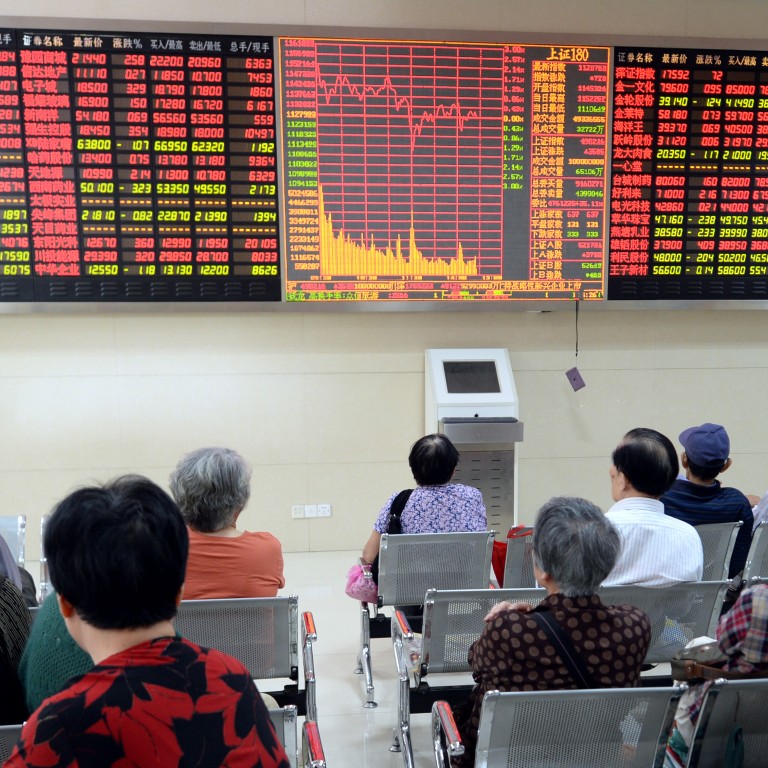
New | Creative traders flock to China’s derivative markets, ups risk profile
The rapid liberalisation of Chinese derivatives markets has attracted a new breed of creative traders employing complex trading strategies that can generate quick profits - and an extra dollop of risk - in China’s runaway stock boom.
Brokerages and fund managers are investing in mathematics whizzes and hardware, and moving servers onto trading floors to gain precious microseconds dealing in new options and futures contracts, helping China’s CSI300 index become the world’s most traded equity futures contract in May.
The introduction of new derivative products is intended to help investors hedge risk, but it also gives rise to the kind of sophisticated trading strategies that have made quick-trading "flash boys" notorious in the United States and Europe.
For the most part the strategies and the traders employing them are untested in China, where the derivatives market barely existed five years ago, and slick automated trading strategies can produce horrific crashes when they go wrong.
"Currently, there are many hedging tools in the market, but liquidity and stability is still a problem the hedge fund industry needs to address," Hong Lei, deputy head of China’s Asset Management Association, told an industry forum last month.
"China’s market is highly inefficient, which means it’s relatively easy to produce absolute returns," said Ken Zhu, Chairman and CEO of hedge fund firm Scientific Investment.
Zhu, a graduate from Boston University and former trader at BlackRock, said he applies big data and quantitative strategies to beat retail investors in China, with an expected return of 20 per cent a year.
"Chinese retail investors don’t have any advantage over us."
Traders’ advantage over ordinary investors was demonstrated on August 16, 2013, after an apparent combination of software and human error at Everbright caused an unintended placement of buy orders worth 68.6 billion yuan (US$11.1 billion) to the Shanghai stock exchange, setting off a short-lived 6 per cent jump in the Shanghai Composite Index (SCI) and an ensuing "flash crash".
Everbright quickly hedged its losses using futures contracts, but ordinary investors who followed the trade were stuck with big losses. Most didn’t qualify to trade futures and couldn’t exit their positions as Chinese investors can’t sell shares they purchased on the same day.
In 2015 the risk is amplified by a triple-digit percentage leap in the SCI. Chinese bourses have already seen three panics that have driven major indexes down about 6 per cent in short order. On Thursday afternoon benchmark indexes suddenly plunged over 5 per cent, wiping out 3.4 trillion yuan ($548 billion) of market value, only to turn positive again by the close.
Analysts blame the new volatility on the preponderance of retail investors in the Chinese market - unlike in the West, where institutions dominate - and to the fact that many Chinese traders are highly leveraged, which tends to amplify movements.
After launching the country’s first stock index futures market in 2010, China this year rolled out two more futures instruments and launched ETF options in February, with plans to roll out more hedging instruments, including single-stock options, in the near future.
Local governments are also getting in on the action, throwing up "hedge fund towns" and luring skilled fund managers with incentives in the hope of replicating the Greenwich hedge fund hub near Manhattan.
Rocky Hu, managing director of Olympus Hedge Fund Investments, expects to bring as many as 15 hedge fund houses or investment teams into China this year.
"Where else in the world has such a big growth potential as China?"
That has already attracted overseas returnees like Wang Feng, a physics graduate from University of Michigan and former Wall Street trader, who finally sees an opportunity to apply scientific methods in China’s stock and futures markets.
In March Wang rented an office in Hangzhou, capital of the eastern Zhejiang province, to serve as headquarters for his hedge fund, Alpha Squared Capital.
He is testing high-frequency trading (HFT), which uses automated trading strategies to execute thousands of transactions per second, aiming to generate giant profits from small movements in prices.
"Theoretically, we hope to achieve the same speed as in US markets, transactions occurring in microseconds," Wang said, but noted that expensive hardware and software alone is not enough.
"The key is to develop the right trading strategy for China."
Some doubt such strategies will pay off in the short run, especially those relying on intense bursts of transactions, because exchanges have mechanisms for fending off transaction floods.
"Watching transactions pour in too fast, you can see the exchanges slowing them down," said an exchange regulator who spoke on condition of anonymity.

